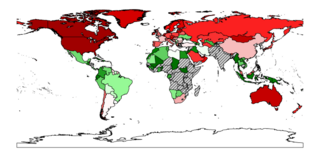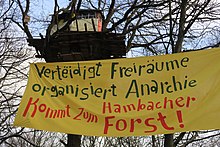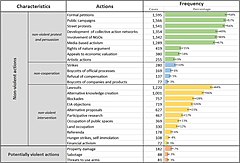
Natural capital is the world's stock of natural resources, which includes geology, soils, air, water and all living organisms. Some natural capital assets provide people with free goods and services, often called ecosystem services. All of these underpin our economy and society, and thus make human life possible.

Ecological economics, bioeconomics, ecolonomy, eco-economics, or ecol-econ is both a transdisciplinary and an interdisciplinary field of academic research addressing the interdependence and coevolution of human economies and natural ecosystems, both intertemporally and spatially. By treating the economy as a subsystem of Earth's larger ecosystem, and by emphasizing the preservation of natural capital, the field of ecological economics is differentiated from environmental economics, which is the mainstream economic analysis of the environment. One survey of German economists found that ecological and environmental economics are different schools of economic thought, with ecological economists emphasizing strong sustainability and rejecting the proposition that physical (human-made) capital can substitute for natural capital.
Ecological modernization is a school of thought that argues that both the state and the market can work together to protect the environment. It has gained increasing attention among scholars and policymakers in the last several decades internationally. It is an analytical approach as well as a policy strategy and environmental discourse.

The exploitation of natural resources describes using natural resources, often non-renewable or limited, for economic growth or development. Environmental degradation, human insecurity, and social conflict frequently accompany natural resource exploitation. The impacts of the depletion of natural resources include the decline of economic growth in local areas; however, the abundance of natural resources does not always correlate with a country's material prosperity. Many resource-rich countries, especially in the Global South, face distributional conflicts, where local bureaucracies mismanage or disagree on how resources should be utilized. Foreign industries also contribute to resource exploitation, where raw materials are outsourced from developing countries, with the local communities receiving little profit from the exchange. This is often accompanied by negative effects of economic growth around the affected areas such as inequality and pollution

Environmental racism, ecological racism, or ecological apartheid is a form of racism leading to negative environmental outcomes such as landfills, incinerators, and hazardous waste disposal disproportionately impacting communities of color, violating substantive equality. Internationally, it is also associated with extractivism, which places the environmental burdens of mining, oil extraction, and industrial agriculture upon indigenous peoples and poorer nations largely inhabited by people of color.
Environmental justice or eco-justice, is a social movement to address environmental injustice, which occurs when poor or marginalized communities are harmed by hazardous waste, resource extraction, and other land uses from which they do not benefit. The movement has generated hundreds of studies showing that exposure to environmental harm is inequitably distributed.

Ecological debt refers to the accumulated debt seen by some campaigners as owed by the Global North to Global South countries, due to the net sum of historical environmental injustice, especially through resource exploitation, habitat degradation, and pollution by waste discharge. The concept was coined by Global Southerner non-governmental organizations in the 1990s and its definition has varied over the years, in several attempts of greater specification.
Degrowth is an academic and social movement critical of the concept of growth in gross domestic product as a measure of human and economic development. The idea of Degrowth is based on claims and research from a multitude of disciplines such as economic anthropology, ecological economics, environmental sciences, and development studies. It argues that modern capitalism's unitary focus on growth causes widespread ecological damage and is unnecessary for the further increase of human living standards. Degrowth theory has been met with both academic acclaim and considerable criticism.

Environmental issues are disruptions in the usual function of ecosystems. Further, these issues can be caused by humans or they can be natural. These issues are considered serious when the ecosystem cannot recover in the present situation, and catastrophic if the ecosystem is projected to certainly collapse.

Joan Martinez Alier is a Catalan economist, Emeritus Professor of Economics and Economic History and researcher at ICTA at the Autonomous University of Barcelona. He has made important contributions in ecological economics and political ecology, which he synthesised in his work on environmentalism of the poor.

Weak and strong sustainability are terms that have emerged from the field of environmental economics and describe opposing approaches to sustainability, specifically in relation to natural resource management and economic development. One of the first pieces of work to discuss these ideas was "Blueprint for a Green Economy" by Pearce, Markandya, and Barbier, published in 1989. This work laid the foundations for further discussion on the substitutability of natural capital and human-made capital and the implications for long-term ecological and economic health. Weak sustainability argues that natural and human capital are interchangeable, meaning that the use or loss of natural capital can be considered sustainable if the human capital meets or exceeds the value of the natural capital. It assumes that different types of value can be measured and given value in the same way. For example, replacing a natural forest with a park or agricultural land can be considered sustainable if the recreational or economic value equal the value of the biodiversity lost and further environmental impact caused. Strong sustainability on the other hand, argues that natural capital should be maintained or enhanced independently of human-made capital. It considers that certain natural assets are incommensurable and have critical ecological functions that cannot be substituted by human-made alternatives. For example, cutting down trees in a natural forest and planting new trees elsewhere cannot be considered sustainable as the value of biodiversity lost and wider ecological implications cannot truly be measured or replaced.

Eco-socialism is an ideology merging aspects of socialism with that of green politics, ecology and alter-globalization or anti-globalization. Eco-socialists generally believe that the expansion of the capitalist system is the cause of social exclusion, poverty, war and environmental degradation through globalization and imperialism, under the supervision of repressive states and transnational structures.

The Mesoamerican Society for Ecological Economics (SMEE) is a regional chapter of the International Society for Ecological Economics (ISEE). After its foundation in 2008 at Guatemala City, the organization has already celebrated its first International Conference in 2010 at Mexico City and will carry out the second International Conference, EcoEco Alternatives, between March 4 and 8 2014 at the main campus of the University of Costa Rica.

Giorgos Kallis is an ecological economist from Greece. He is an ICREA Research Professor at ICTA - Universitat Autònoma de Barcelona, where he teaches political ecology. He is one of the principal advocates of the theory of degrowth.
Ecologically or ecological unequal exchange is a concept from ecological economics that builds from the notion of unequal exchange. It considers the inequities hidden in the monetary value of trade flows not only in terms of wages, and quantities of labor but also regarding materials, energy and environmental degradation. As labor is also a form of energy, unequal exchange of embodied labor can even be considered a subset of the wider phenomenon of ecologically unequal exchange. There is an uneven utilization of the environment at the global level not only due to the uneven distribution of resources, but also to shift the environmental burden. The consumption and capital accumulation of core countries are based on environmental degradation and extraction in periphery countries. Sustainability analysis and solutions with a production-based perspective in core countries may thus keep increase unsustainability at the global level. The current configuration of global production networks that leads to this asymmetric trade patterns has evolved historically with colonialism. Whereas ecological unequal exchange is a concept developed in academia, the concept of ecological debt is used in an activism context of environmental justice. The latter defines the accumulation of this unequal exchange through history.
Environmental defenders or environmental human rights defenders are individuals or collectives who protect the environment from harms resulting from resource extraction, hazardous waste disposal, infrastructure projects, land appropriation, or other dangers. In 2019, the UN Human Rights Council unanimously recognised their importance to environmental protection. The term environmental defender is broadly applied to a diverse range of environmental groups and leaders from different cultures that all employ different tactics and hold different agendas. Use of the term is contested, as it homogenizes such a wide range of groups and campaigns, many of whom do not self-identify with the term and may not have explicit aims to protect the environment.
Environmentalism of the poor is a set of social movements that arise from environmental conflicts when impoverished people struggle against powerful state or private interests that threaten their livelihood, health, sovereignty, and culture. Part of the global environmental justice movement, it differs from mainstream environmentalism by emphasizing social justice issues instead of emphasizing conservation and eco-efficiency. It is becoming an increasingly important force for global sustainability.
Blockadia is a global anti-extractivism movement; and a roving, transnational conflict zone where everyday people obstruct development of extractive projects, especially in the fossil fuel industry. Blockadia resistance movements differ from mainstream environmentalism by use of confrontational tactics such as civil disobedience, mass arrests, lockdowns, and blockades to contest perceived threats arising from extractivist projects’ contributions to global climate change and local environmental injustice. Some researchers have concluded that Blockadia contributes to a transition toward a more just society.

The Environmental Justice Atlas, sometimes known as EJAtlas is a website that documents environmental conflict.

The Environmentalism of the Poor: A Study of Ecological Conflicts and Valuation is a 2002 non-fiction book by Joan Martinez Alier about the environmentalism of the poor.














